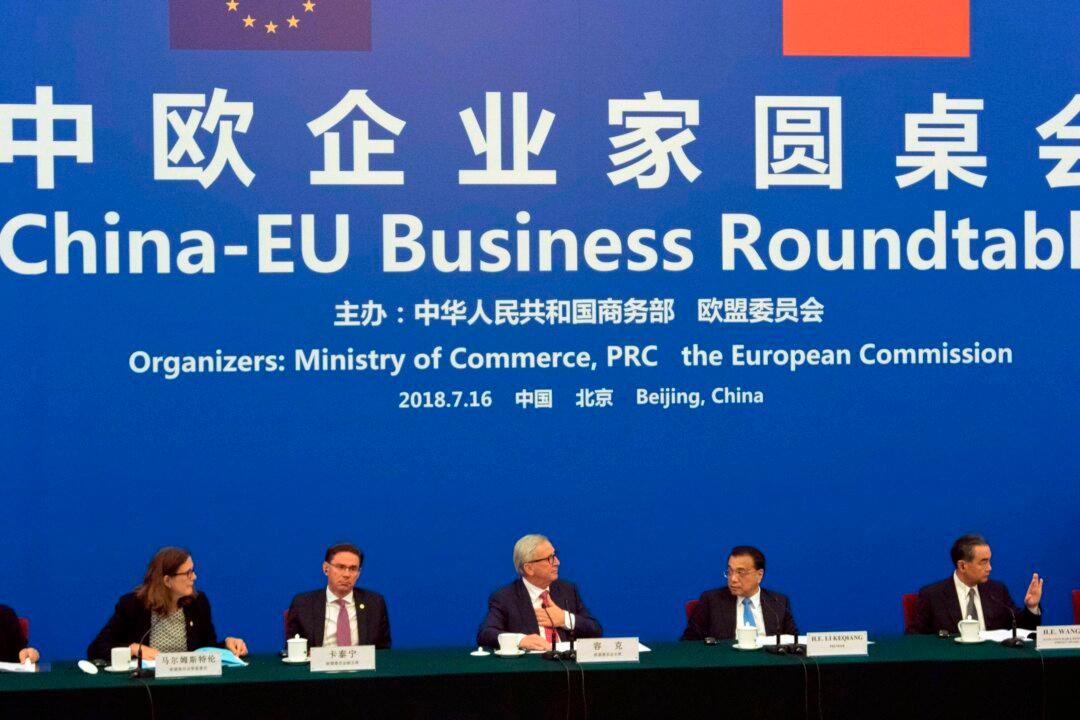BRUSSELS—Chinese Premier Li Keqiang and European Union institution leaders met in Brussels on April 9 for an annual EU-China summit that the EU has seized on to pressure Beijing over trade and investment.
After years of offering free access to its markets, the EU is losing patience with the slow pace of Beijing’s own market liberalization. It is also growing concerned over state-led Chinese companies’ dominance of some EU markets and acquisitions of strategic industries.





